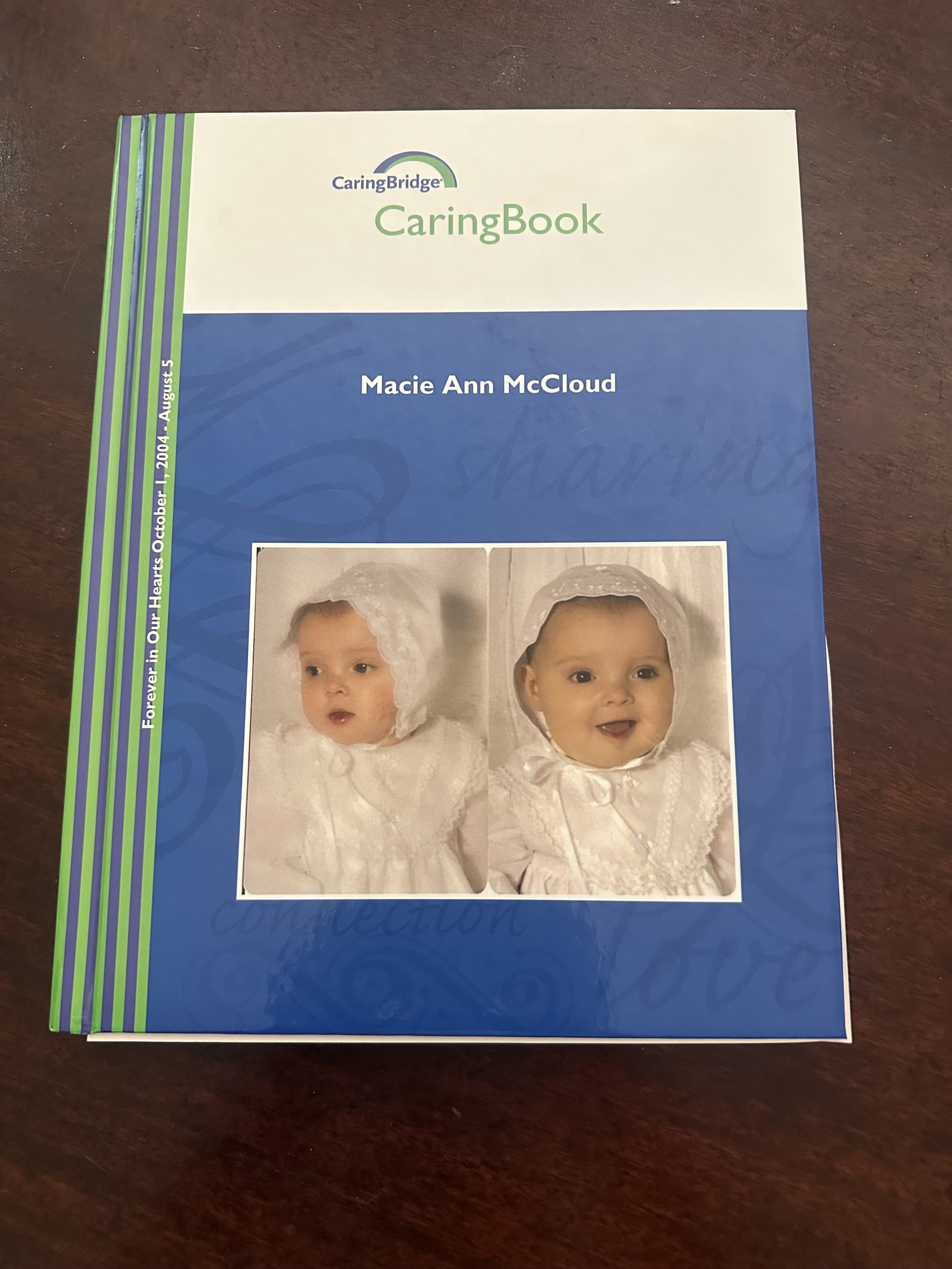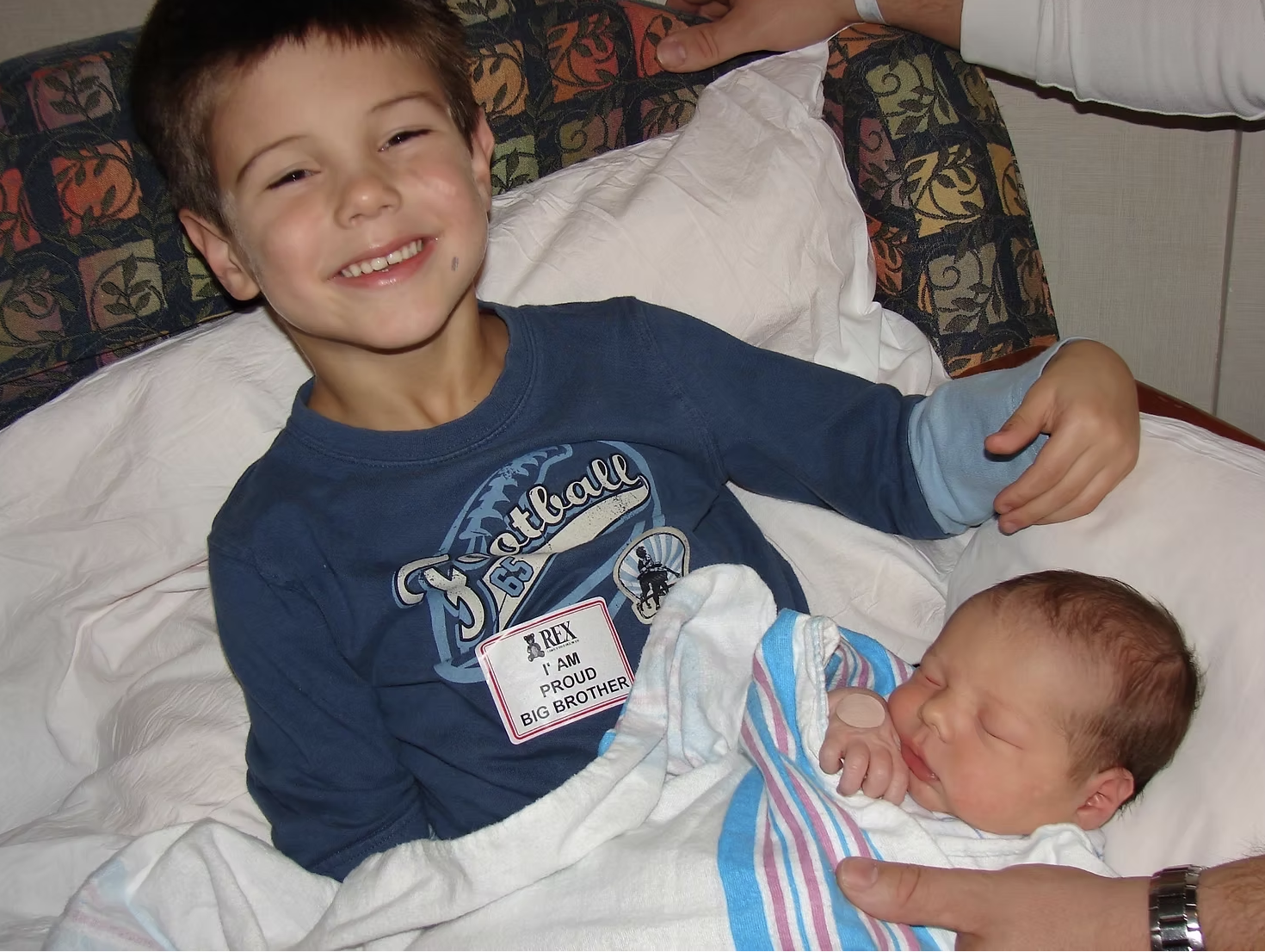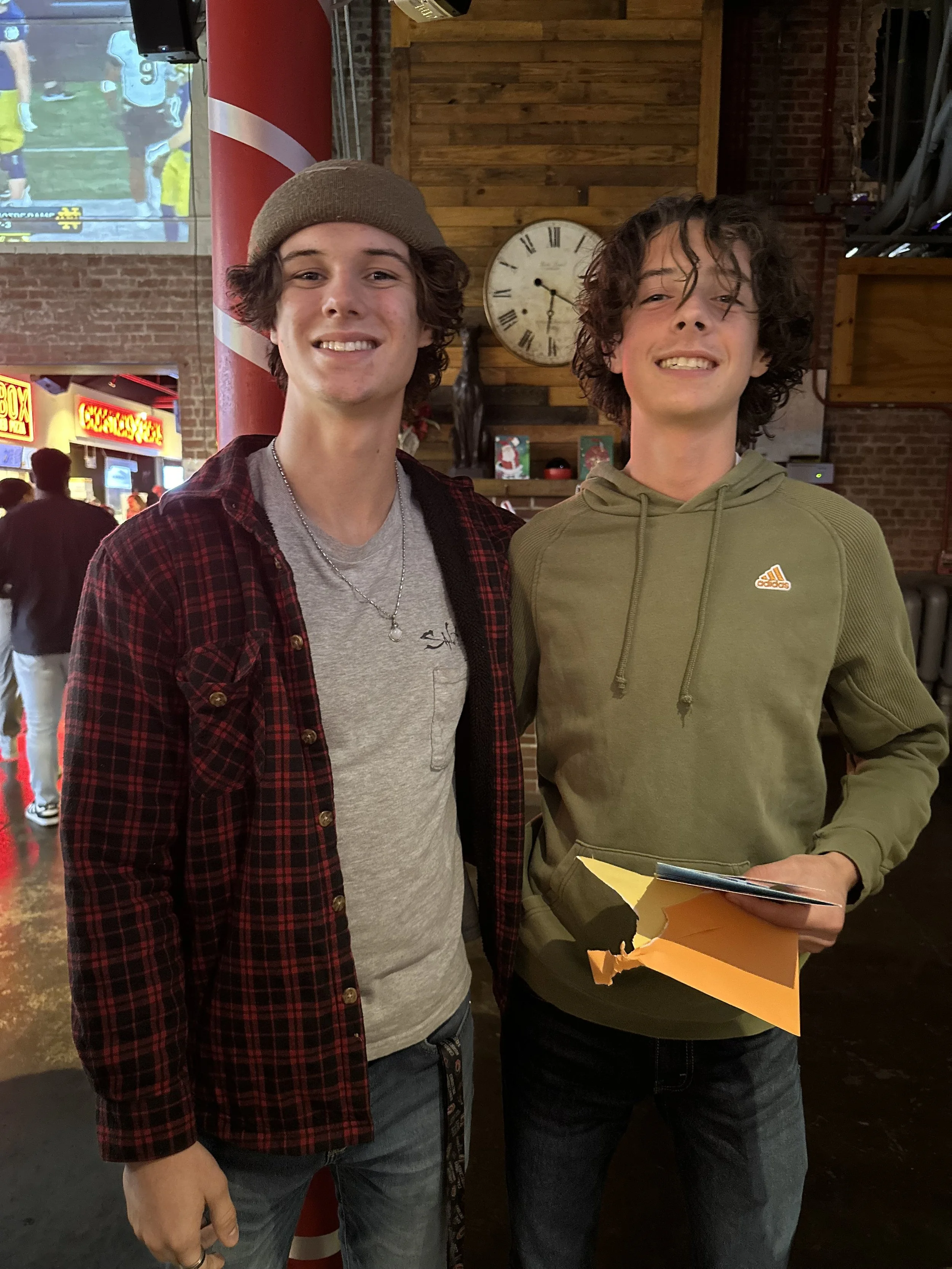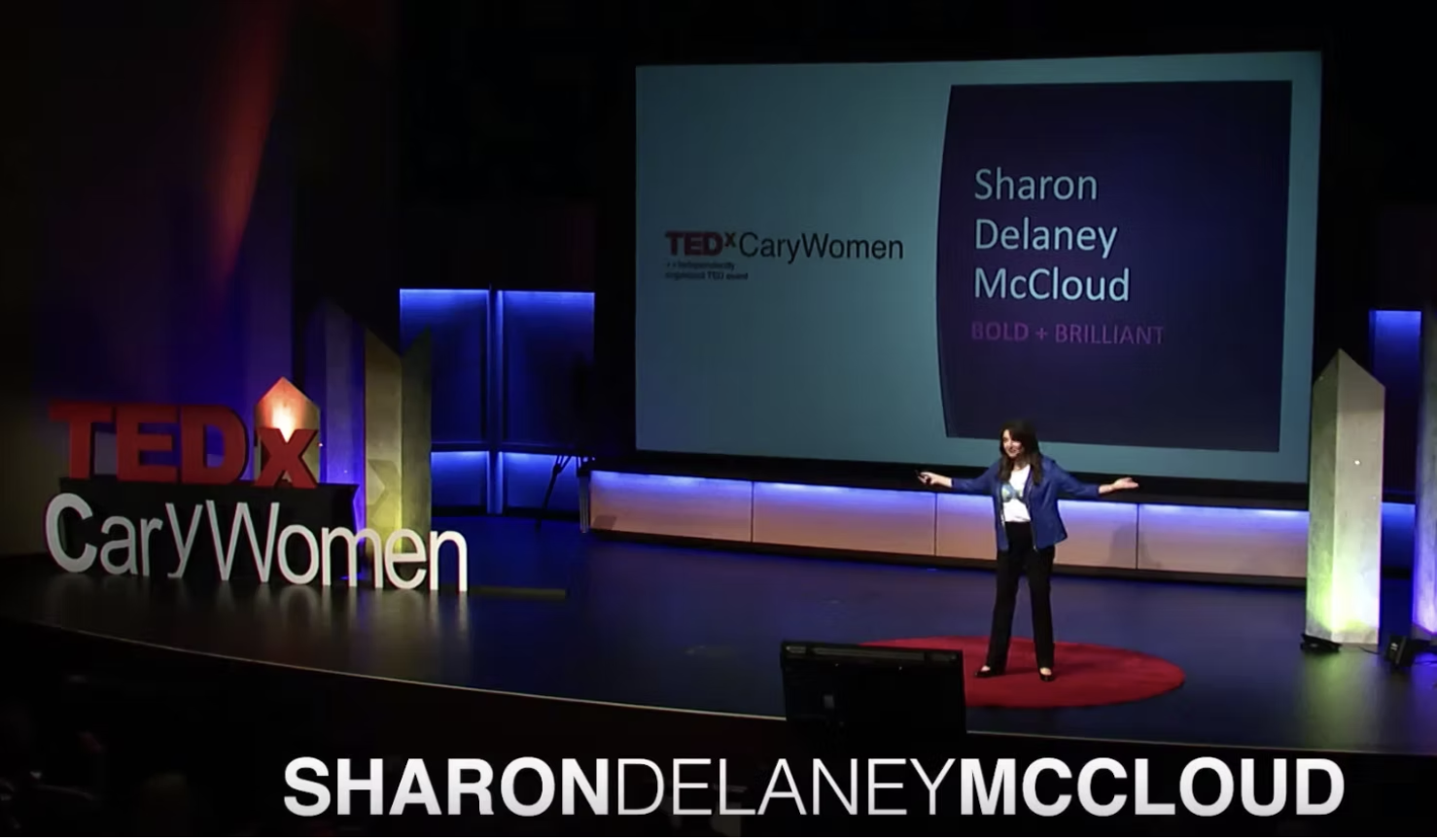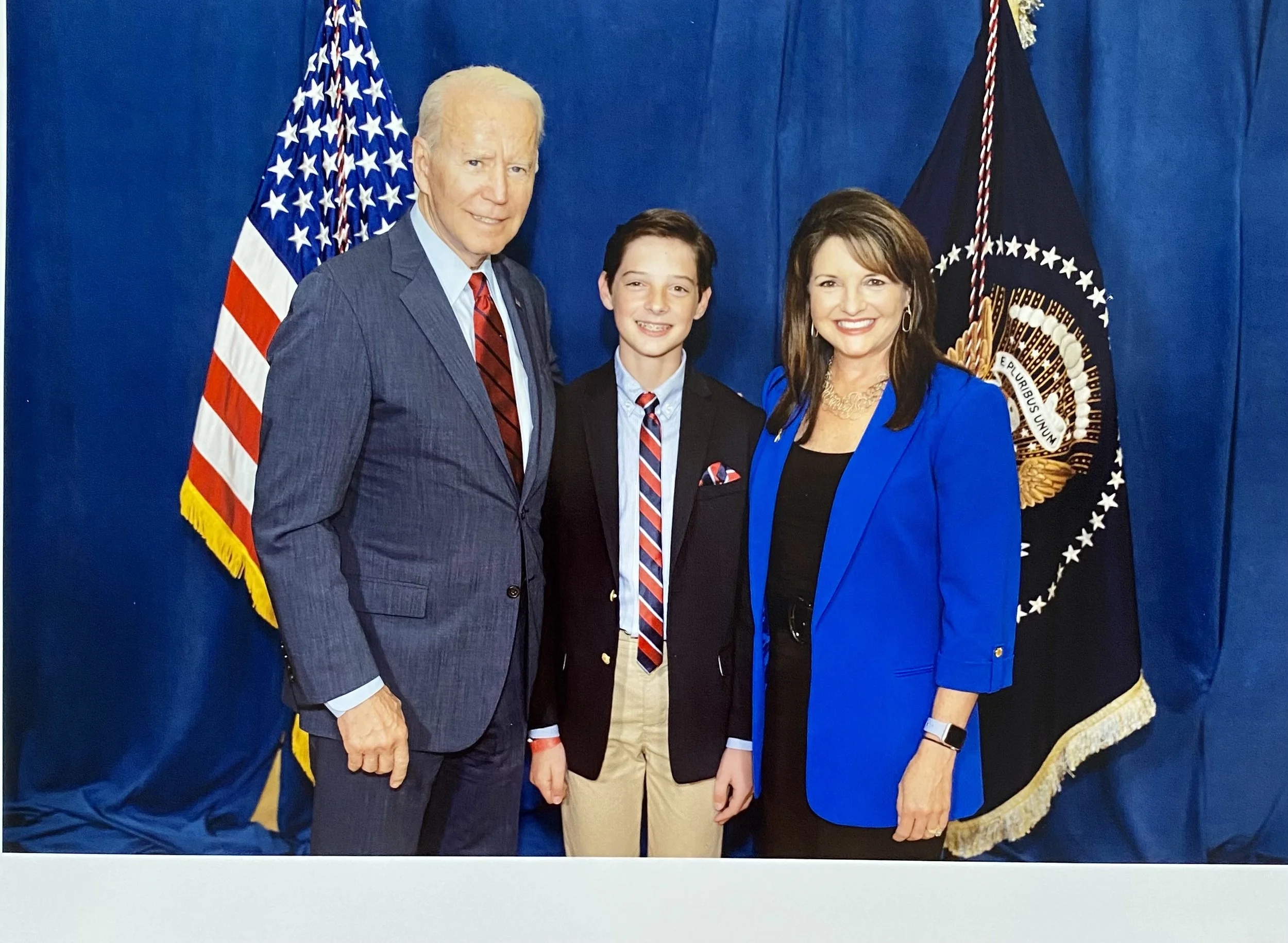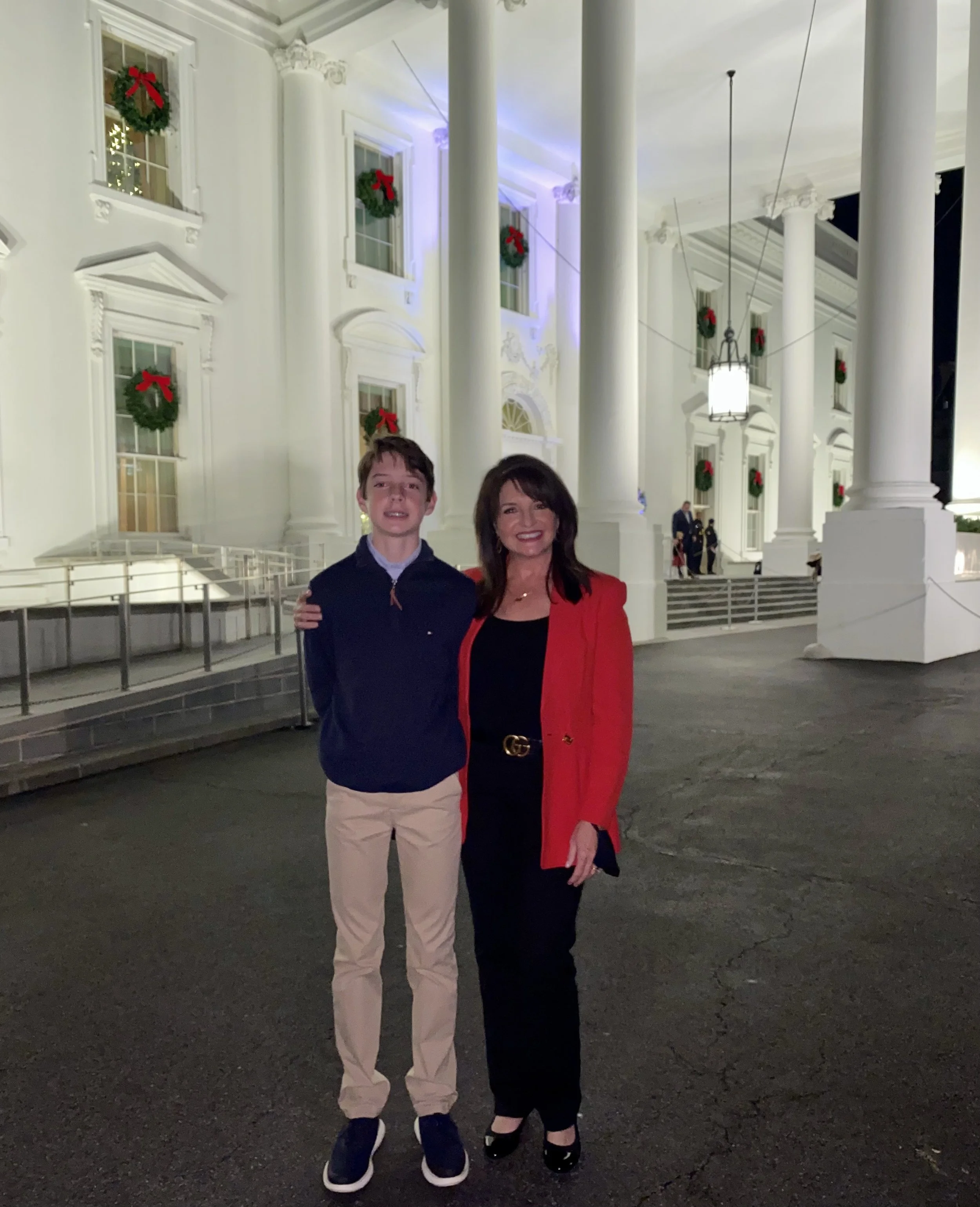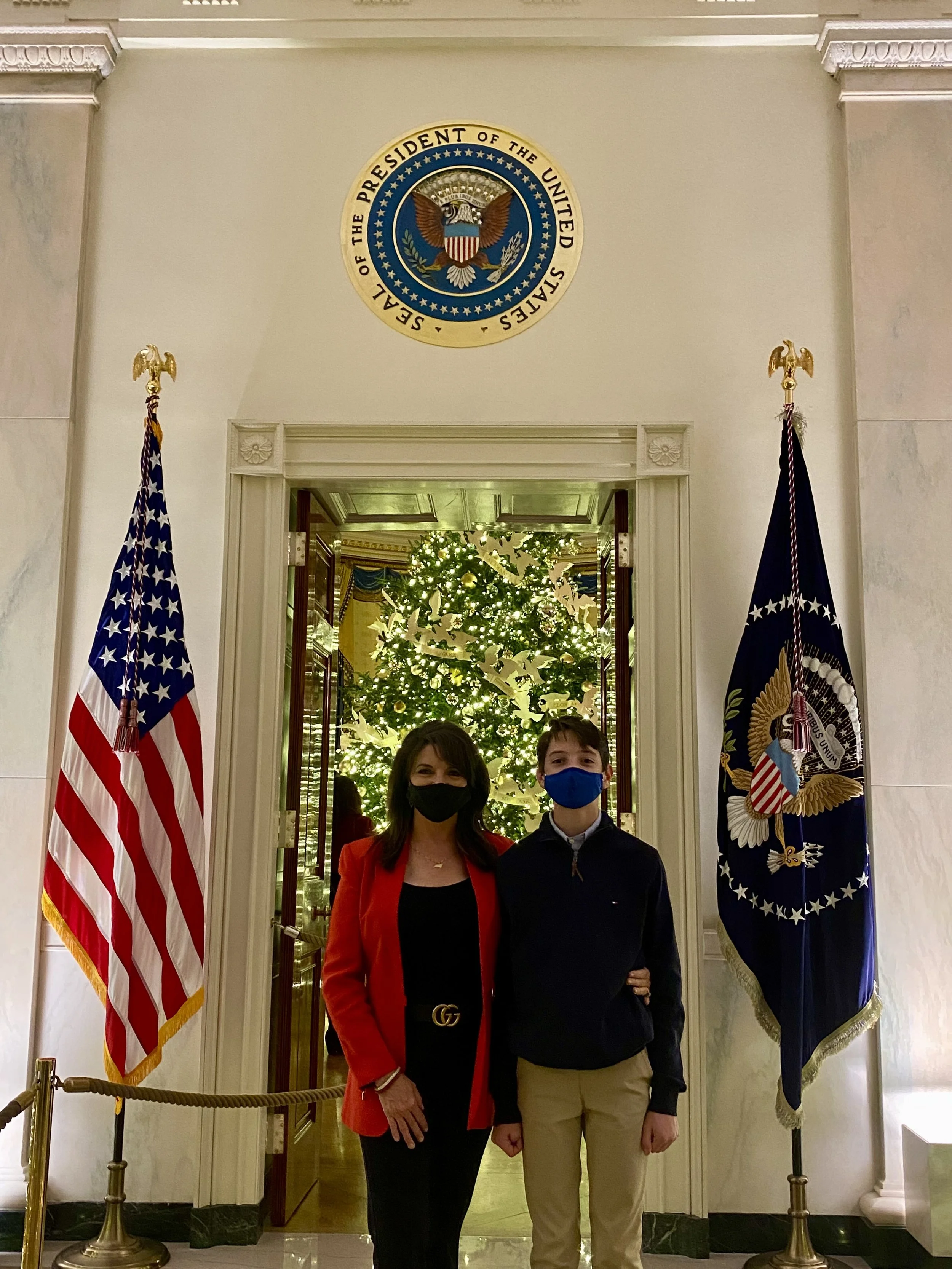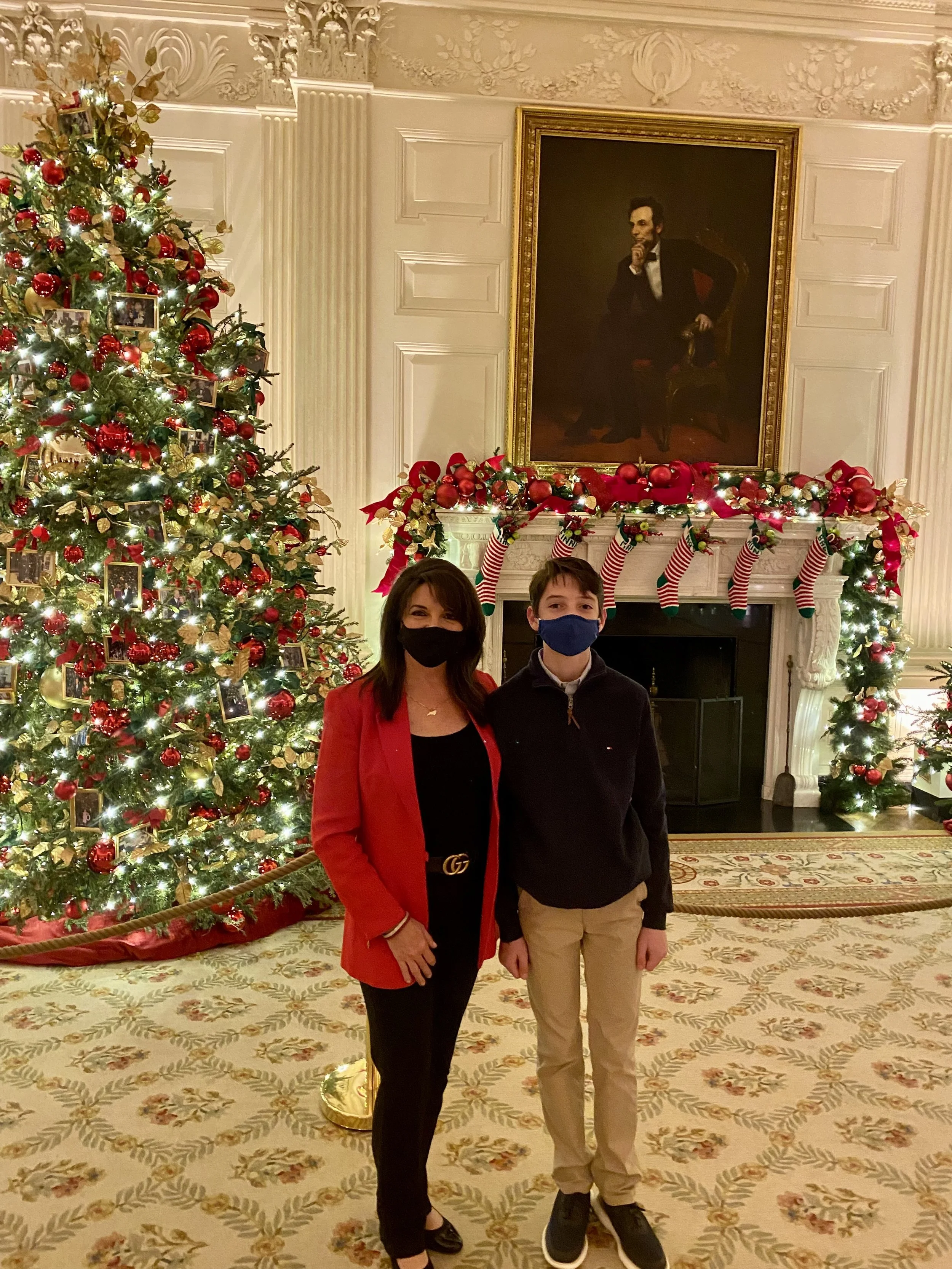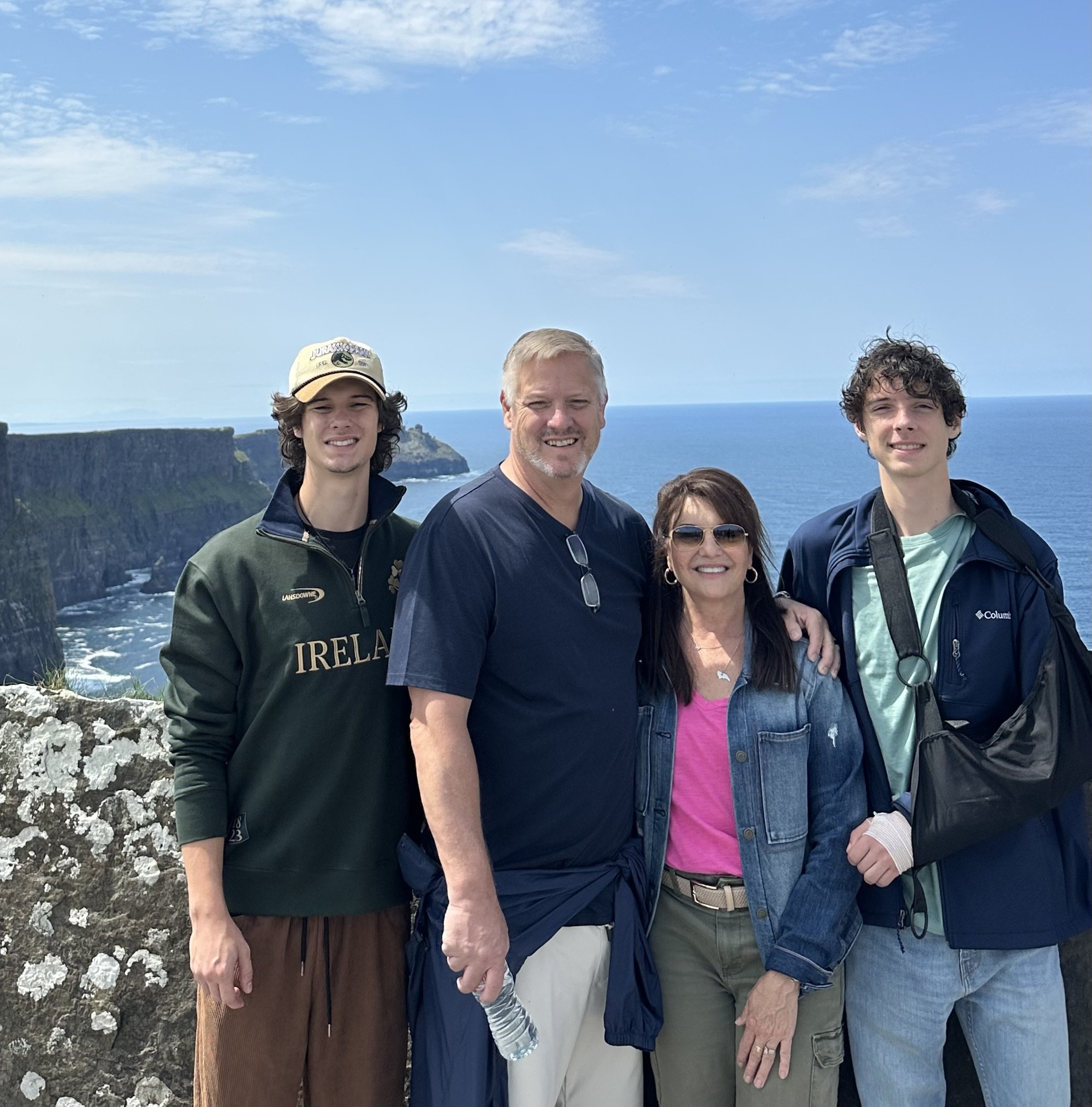20 Years...how can it be?
August 5th, 2005 - the line in the sand that divided our lives forever.
Is there a specific time in your life where everything changed? Changed so dramatically that nothing could have ever prepared you for the other side?
All of us will experience some version of this chasm in our journey. For us, it was August 5th, 2005 when our beautiful daughter Macie died. She had cancer and was battling the disease like the kind of warrior you only see in movies. But at just ten months old, the toxic side effects from months of brutal chemotherapy, transfusions, scans, surgeries, bone marrow biopsies and endless tests were too much for Macie. It happened so fast. Urgent surgery to investigate why her body was shutting down from Acute Myloid Leukemia was the jarring, unexpected end to Macie's remarkable, physical life.
Now, two decades later, I read through the pages of Macie's Caring Bridge website printed in book form. With each set back and success that I wrote in medical-jargon detail, tears well up. Tears that don't come easily anymore thanks to an anti-depressant that keeps me fairy stable, if not calloused at times.
Macie’s Caring Bridge Book
So much life has transpired since Macie died. We were beyond fortunate to have a rainbow baby, a child born after the loss of another. Pierce arrived on November 19th, 2007. He helped his big brother Conner and us heal. His demeanor and love were exactly the salve needed for our open wounds.
Conner and Pierce - 2007
The McCloud Brothers - 2024 & 2025
Part of our grief story includes partnering with organizations that raise awareness and funds for pediatric cancer, the number one disease killer of children in the United States. In addition to our passionate volunteer work with the St. Baldrick's Foundation and the Leukemia & Lymphoma Society, we've engaged in advocacy for bereavement leave. Our society doesn't do well with death. Considering that we all face this for ourselves and our loved ones, it's a ridiculous notion that we avoid talking about it. Grief and loss are part of life. Full stop.
That led me to developing a TEDx Talk that I delivered in December 2019. It was the most challenging yet rewarding keynote of my life. The catalyst for the talk rests with the awkwardness bereaved parents often feel when someone asks, "How many kids do you have?" Do you include your heavenly child along with your living kids? And why isn't there a name for a parent who has to bury their child? After all, we have a word for a woman whose husband dies (WIDOW), or a child whose parents die (ORPHAN), but what is the word for a parent whose child has died? Here's where I introduce us to the word VILOMAH. Take a look at my TEDx Talk here.
Little did I know what would follow. For months and now years since the TEDxCaryWomen event, I've heard from people all over the world wanting to connect about grief, healing, and how to approach the inevitable with better language and understanding, especially for vilomahs.
"This broke me."
From Jamie, a labor and delivery nurse who works for Kaiser Permanente's hospital in Santa Clara, California. She saw my TEDx Talk at a class she took to better care for parents who lose their babies. She reached out to share her own story of loss while looking after her patients in the same heartbreaking scenario.
"Oh my goodness Sharon, incredible. On behalf of the team and myself, thank you so much for sharing your story about Macie, we are so grateful."
From Francesca at the National Health Service in the United Kingdom after I delivered a modified version of the TEDx Talk during their Bereavement Education Day for pediatric caregivers across their system.
__________________________________________________________________________________
It's true what they say about grief. There's no straight line, no playbook. It's unique to everyone and you never know when a wave of gut wrenching sadness will wash over you. In the weeks after Macie died, I sat in my house staring at her photos, holding her stuffies, sleeping in her room. I didn't realize at the time how lucky I was that my employer gave me the time I needed before returning to work.
But that, as I learned, doesn't happen for everyone. The Family and Medical Leave Act allows you to take unpaid leave to care for a loved one for up to 12 weeks without losing your job. However, if your loved one dies during that time, you have to return to work. FMLA doesn't provide protected bereavement leave. It's totally up to your employer.
My bosses at NBC News' owned and operated station in Raleigh, NC were more than generous to my family when Macie died. We could plan her funeral, take precious time with our family and friends and learn to breathe again. I'll forever be grateful to my co-workers for the grace and care they showed us.
That's not the case for many others. As it stands, there's no federal policy in the United States. There are a few states that have implemented bereavement leave laws, though they vary:
Oregon: Up to 2 weeks unpaid leave per family member death (part of Oregon Family Leave Act).
Illinois: The Family Bereavement Leave Act (2023) requires employers with 50+ employees to provide up to 10 days unpaid leave for the death of a covered family member or loss related to pregnancy/adoption.
Washington: Includes bereavement under the Paid Family and Medical Leave for certain circumstances like perinatal loss.
Employer Policies
Many employers voluntarily offer bereavement leave as part of their benefits packages. Typical policies include:
3 to 5 days of paid leave for immediate family (spouse, child, parent).
Less time (or unpaid) for extended family or others.
In my research, I stumbled upon Evermore, an incredible organization dedicated to making the world a more livable place for all bereaved people. As its founder Joy Mulheron shares bereavement is largely undocumented and therefore a “hidden” (or invisible) problem in the United States and throughout the world. In addition to the immense personal tragedy people experience, it’s a problem with vast health, economic, and social consequences. We need more than thoughts and prayers.
It was through the Evermore website that I wrote to the White House in April 2021 asking for President Biden's support for real policy around bereavement leave. As you remember, we were in the midst of a global pandemic and millions of people were facing tremendous loss on a daily basis.
And then this happened...(hit play button)
What an incredible experience to bring this issue to the highest office in our land. Grief doesn't subscribe to politics. This is a human issue that needs to be addressed. During the last 20 years of this life without Macie, I've looked for the ways we react to loss. I'm encouraged that pop culture is taking notice, too. This summer I've watched two shows that feature fathers grappling with the loss of their children. Check out Stick on Apple+ with Owen Wilson and Untamed on Netflix. They both show us a Dad's perspective, which often gets overshadowed.
As we move farther away from the line in the sand that punctuates our daily existence, I try to slow down and be present for the precious time we have. Tomorrow isn't promised for any of us. Let's all turn our battle scars into badges of honor.
Conner, Mike, Sharon and Pierce - Ireland 2025


